Performing pre-purchase research by visiting dealerships, reading reviews, and comparing prices can save you time and money in the long run. When you have narrowed down your choices and are ready to negotiate a deal, remember that patience and persistence are key.
Be prepared to walk away if a particular dealership is unwilling to work with you or meet your desired price. Closing the deal is only the beginning; familiarize yourself with post-purchase considerations to maximize the enjoyment and utility of your new travel trailer.
Key Takeaways
To secure a great deal on a travel trailer, thoroughly research and compare prices online to understand market trends. Consider purchasing during the off-season, like late fall or winter, when prices are typically lower due to decreased demand. Engage in negotiations, as there’s often flexibility in pricing, especially with well-informed buyers. Opting for a slightly used trailer can also yield substantial savings without sacrificing quality. Finally, explore options at RV shows or dealerships, where special deals and financing offers are more common.
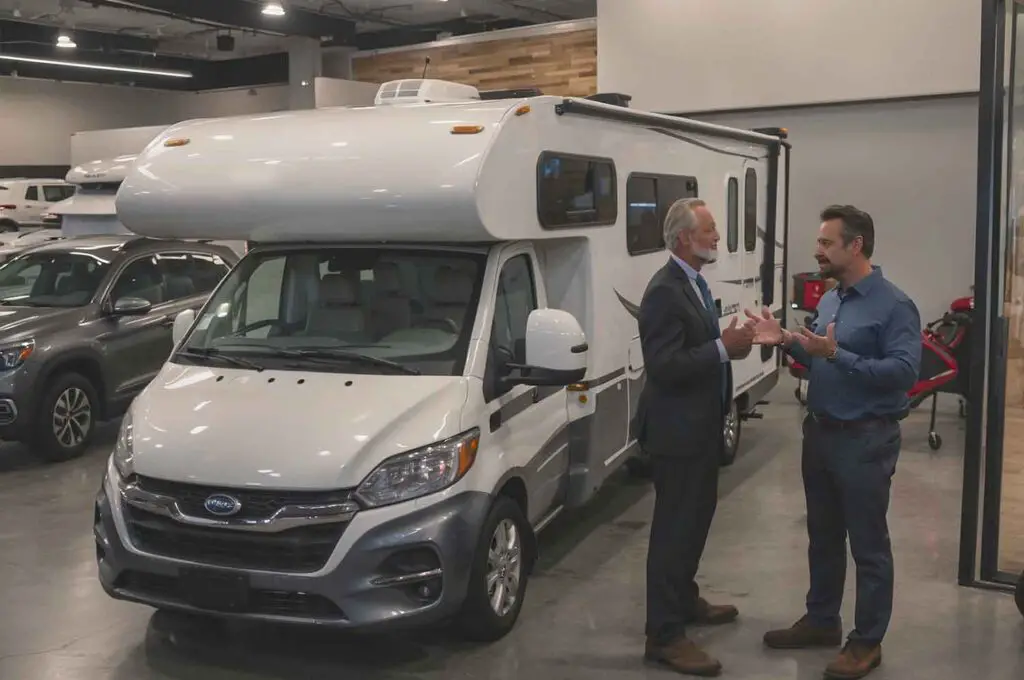
Understanding Travel Trailers
Types and Models
There are many different types and models of travel trailers available for purchase. These range from basic, lightweight trailers to more luxurious and spacious models to accommodate your needs. Some popular manufacturers include Winnebago and Grand Design. It is important to familiarize yourself with various RV classes before making a decision. Remember, the right type and model will largely depend on your travel preferences and budget.
Features and Amenities
Travel trailers come with a wide range of features and amenities to make your travels comfortable and enjoyable. Some common features include:
- Fully-equipped kitchen
- Bathroom with shower and toilet
- Comfortable sleeping quarters
- Lounge and dining area
Additional amenities may include entertainment systems, slide-outs to create more living space, and upgraded appliances. When shopping for a travel trailer, consider the floorplan to ensure it meets your needs and preferences.

Towing and Weight Requirements
When choosing a travel trailer, it’s crucial to understand the towing and weight requirements. You must ensure that your vehicle is capable of safely towing the trailer and that the trailer’s weight is within your vehicle’s towing capacity. Factors to consider include:
- Gross Vehicle Weight Rating (GVWR): The maximum weight a travel trailer can safely carry, including the weight of the trailer itself and its contents.
- Gross Combined Weight Rating (GCWR): The total weight of both your towing vehicle and the trailer combined, should not exceed your vehicle’s specified GCWR.
Keep note of the materials used in the construction of the trailer, like Azdel and Luan, to have a clear understanding of the weight. Also, pay attention to the trailer’s frame quality, as it can impact the overall durability of your travel trailer.
By considering these factors when shopping for a travel trailer, you are more likely to make an informed decision and enjoy your RV adventures to the fullest.
Pre-Purchase Research
Price Comparison and Budgeting
When looking for a travel trailer, it’s crucial to do your research and consider important factors such as pricing and budgeting. I always start by looking at the current market value, NADA guides, and the manufacturer’s suggested retail price (MSRP) for the trailer I’m interested in. This helps me establish a baseline for comparison and negotiation as I canvas various sellers. Exploring online forums, social media groups, and local classified ads can give valuable insights into fair pricing for both new and used travel trailers.
Seasonal Buying Advantages
Timing is an essential aspect of getting a great deal on a travel trailer. The traditional RV selling season is from spring through summer, but this also means the demand increases, and so do prices. I’ve found that the best time of year to buy a used RV is during fall and winter when the demand drops, and sellers might be more eager to negotiate. It’s essential to weigh the pros and cons of buying during each season, as well as factoring in any additional costs such as storage or winterization if necessary.
Dealer vs. Private Seller Research
There are advantages and drawbacks to both dealerships and private sellers. Buying from a dealer generally offers the benefits of trade-ins, warranties, financing options, and potentially better customer service. Purchasing from a private seller, on the other hand, can lead to lower prices and the opportunity to ask more detailed questions about the trailer’s history. When considering private sellers, I always have a list of questions to ask to ensure I’m making the right decision. Keep in mind that regardless of the seller, it’s important to inspect the travel trailer thoroughly and even consider hiring a professional to evaluate its condition before purchasing.
Negotiation Strategies
Negotiating the Best Price
When it comes to negotiating the price of a travel trailer, it’s essential to be aware of the financial investment involved and not be afraid to haggle with the dealership. Start by doing thorough research on the specific travel trailer you want, which helps you walk into the negotiation with confidence. Remember to be friendly but firm with the salesperson, as this can make a significant difference in getting the best deal. It’s worth considering the possibility that paying in cash may result in a more favorable outcome, as dealerships might be more likely to provide a discount.

Leveraging Competition
Use competition among dealerships to your advantage. Research other dealers that sell the same travel trailer and get quotes from them. Once you have a few quotes in hand, use them to negotiate a better price at your preferred dealership. Keep in mind that dealerships want to make a sale, and they might be more willing to offer a discount or additional perks if they know you’re considering multiple options. In addition to the price, be sure to explore their inventory to potentially find some unique features or options that may be more appealing to you.
Trade-Ins and Discounts
Another strategy to consider is trading in your old travel trailer. If you already own a travel trailer that you are planning to upgrade, leverage it as part of the negotiation process. By using your old travel trailer as a trade-in, you can potentially secure a better deal on a new one. Additionally, inquire about any available discounts, such as special offers, seasonal promotions, or manufacturer rebates. Make sure to explore your financing options as well, as sometimes dealerships offer better rates or incentives for financing through them.
Remember that negotiation is an essential aspect of smart shopping, which can lead to a great deal on purchasing a travel trailer. By using the strategies mentioned above, you can increase the chances of securing an ideal purchase that fits both your needs and budget.
Closing the Deal
Financing Your Purchase
When it comes to financing a travel trailer, I consider various options such as dealer financing, bank loans, or even personal loans. Comparing interest rates and terms from different lenders helps me secure the best deal possible. I also keep in mind that my credit score plays a significant role in determining my eligibility for financing and the overall cost of a loan. To get a clearer picture of my financial plan, I use an RV loan calculator to estimate the monthly payments and total loan cost.
Inspecting Before Purchase
Before finalizing a travel trailer purchase, I ensure that I thoroughly inspect the unit for any potential damage or issues. This includes checking for signs of water damage, structural issues, and appliance functionality. I also enlist the help of a professional RV inspector when necessary to ensure that I don’t overlook any potential problems. Remember that investing time and effort into inspecting the trailer before purchasing can save you from costly repairs down the road.
Finalizing Paperwork
Once I’m satisfied with the condition of the travel trailer and have figured out the financing, it’s time to finalize the paperwork. I make sure to carefully review the sales contract and any additional agreements, such as warranties or service contracts, to ensure I fully understand all terms and conditions. Moreover, I confirm all fees, such as title fees and taxes, are clearly outlined in the contract before signing.
In some cases, depending on the seller’s location and my state of residence, I might need to register the travel trailer in another state. In this situation, I research the requirements for registration, including taxes, fees, and insurance, to ensure my travel trailer is legally compliant wherever I choose to roam.
By following these steps, I’ve learned how to effectively close the deal on a travel trailer that meets my requirements and budget.
Post-Purchase Considerations

Maintenance and Upkeep
When owning a travel trailer, it’s essential to budget for regular maintenance and upkeep costs. I’ve found that the Cost of RV Ownership: Complete Expense Analysis can provide a useful overview of ownership expenses. It’s wise to remember that maintaining your camper is crucial for its longevity and to ensure your camping experiences remain enjoyable.
Periodically, it is essential to inspect critical components such as the brakes, tires, and roof seals. Additionally, I recommend investing in preventive measures like routine oil changes and winterizing your camper to avoid costly repairs in the long run.
One common challenge faced by many RV owners is finding adequate storage solutions. It’s essential to consider whether your garage can accommodate your camper’s size. If not, you may need to explore alternative options, such as lowering your trailer to fit it into your garage or renting a storage facility.
Customizations and Upgrades
After you’ve purchased your travel trailer, you might find it beneficial to invest in customizations and upgrades to enhance your camping experience. Adding extras, like solar panels, can turn your camper into an off-grid paradise and reduce your dependence on campsite amenities.
There’s a wide range of upgrades available, from interior improvements, such as adding storage solutions or installing high-efficiency appliances, to exterior enhancements like awnings or outdoor lighting. You’ll likely find many aftermarket upgrades that cater to your specific desires and preferences. However, it’s essential to keep in mind that adding too many extras may lead to increased maintenance fees and, in some cases, decrease the resale value of your trailer.
In conclusion, owning a travel trailer comes with a unique set of responsibilities. By considering both the maintenance and customization aspects post-purchase, you can ensure your camper remains in excellent condition while maximizing your enjoyment on your camping adventures.


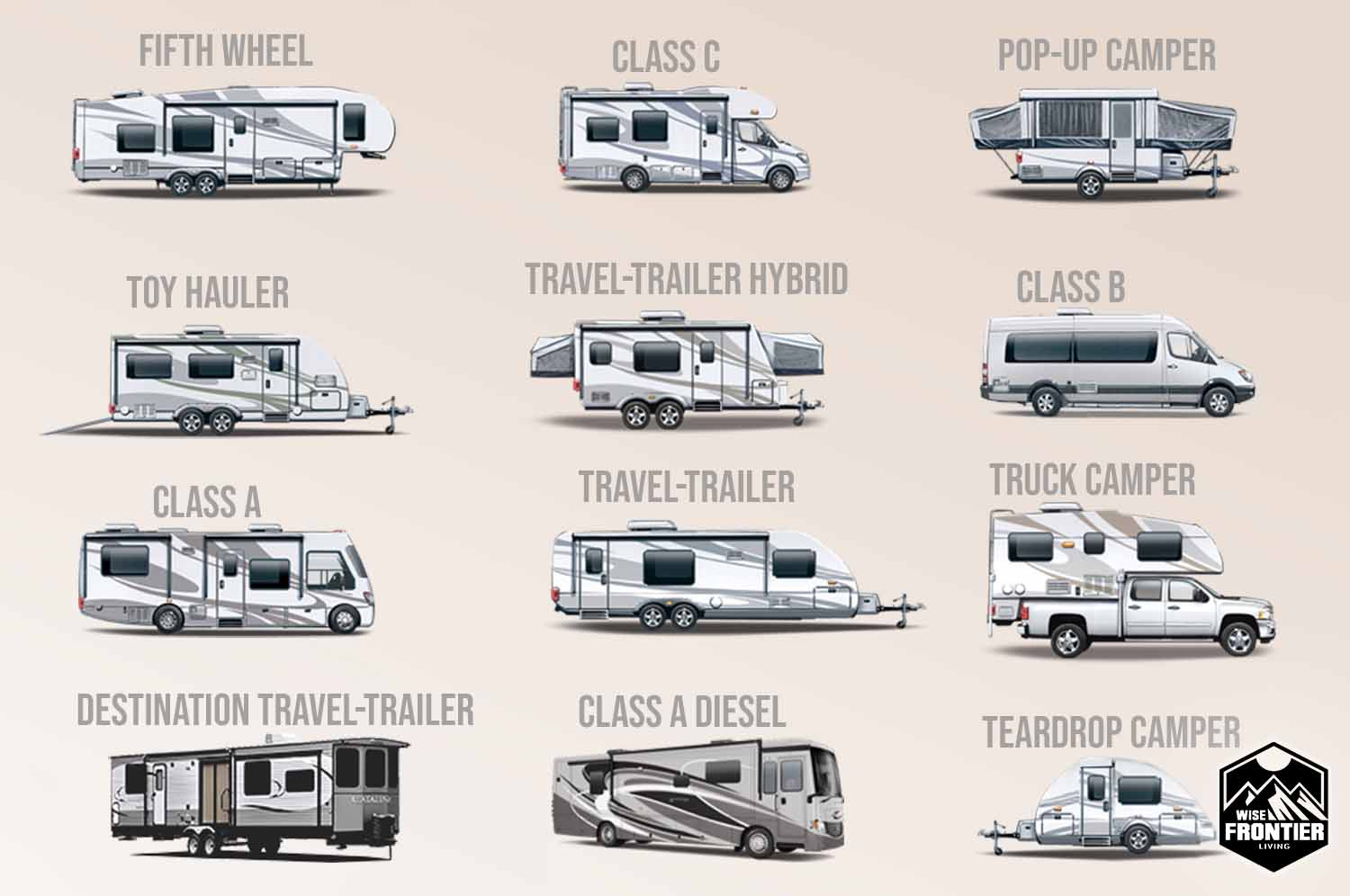
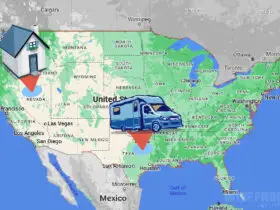
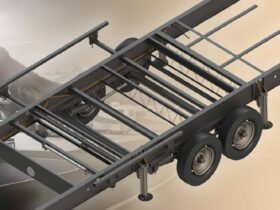
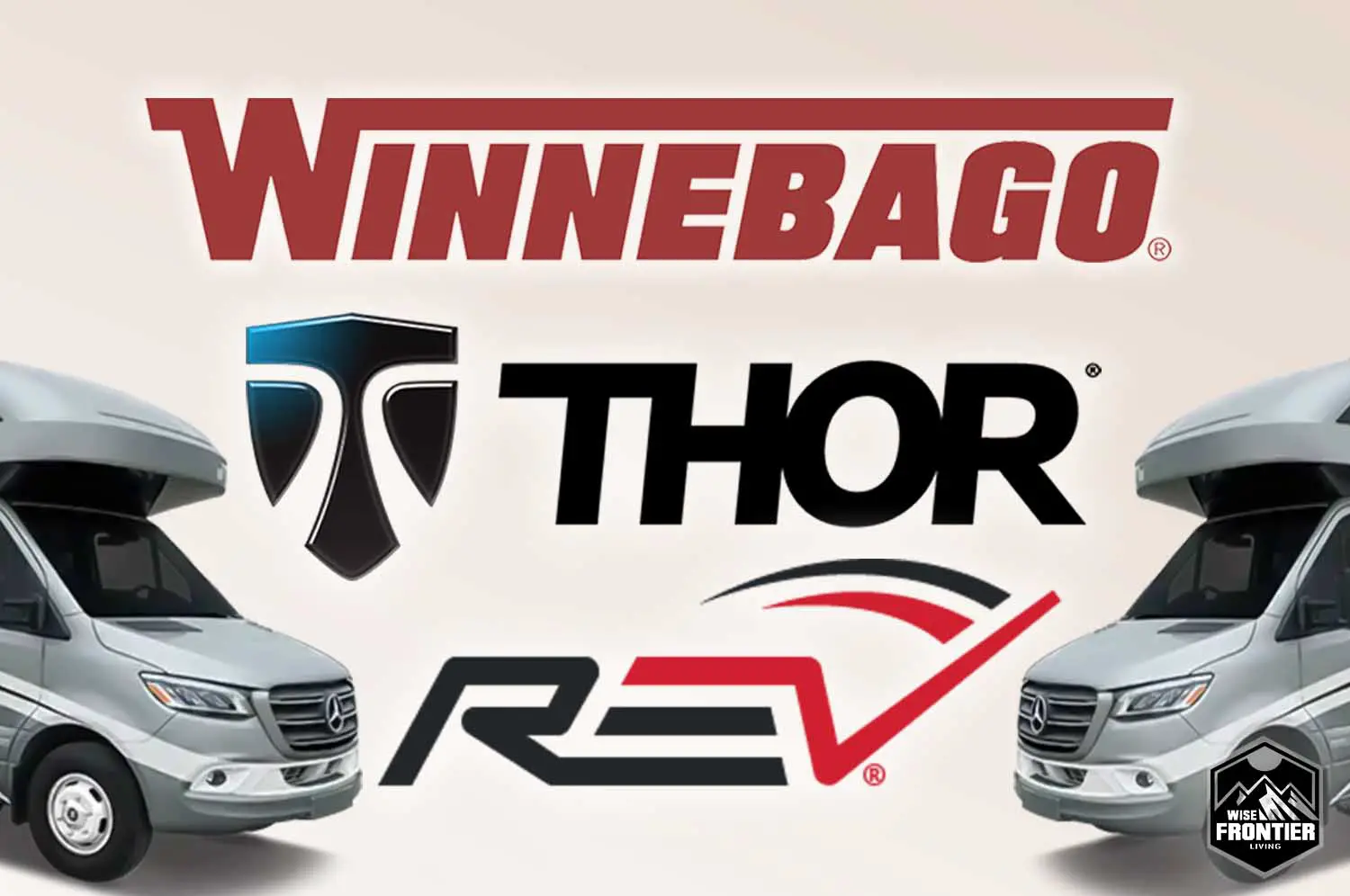



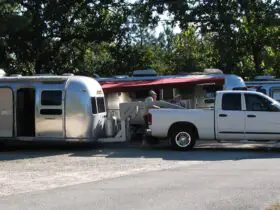
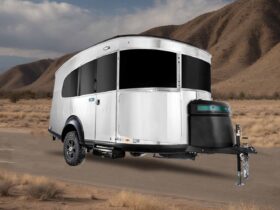

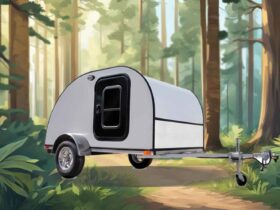
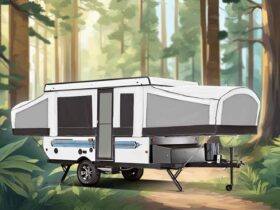

Leave a Reply